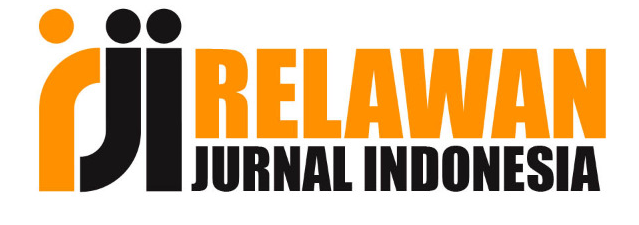Know You Mind Manage Your Emotions: Practical Psychology Training for a Lighter Life
DOI:
https://doi.org/10.63217/socrates.v1i4.161Keywords:
Thoughts, Emotions, Psychological TrainingAbstract
The training program, “Recognize Your Thoughts, Manage Your Emotions: Practical Psychology for a Lighter Life,” is designed to help students recognize negative thought patterns and manage their emotions in a healthier way amid academic pressures. The training was held at Bhayangkara University Jakarta Raya, involving 30 students from various majors. The training material covers four main components: cognitive distortions, self-talk, emotion regulation, and emotion validation, delivered through an experiential learning approach in the form of discussions, breathing exercises, journaling, role-playing, and reflection. Evaluation was conducted using pre-tests and post-tests with paired sample t-test analysis. The results showed a statistically significant increase (t(29) = -5.213, p < .001) with a large effect size (Cohen’s d = -0.952), indicating that the training had a strong impact on enhancing participants’ psychological awareness and skills. Despite challenges such as participant tardiness and training time not fully aligning with the schedule, the training proceeded in accordance with learning objectives. Activity documentation was conducted in the form of photos and videos. In conclusion, this training is effective as a promotional and preventive measure for student mental health and can be replicated on a larger scale in higher education settings.
References
Edmonds, M. K. (2023). First Year University Student Motivation Profiles and Use of Motivational Regulation Strategies in Relation to Student Wellbeing and Academic Performance: Exploring. https://ir.canterbury.ac.nz/handle/10092/105163%0Ahttps://ir.canterbury.ac.nz/bitstream/handle/10092/105163/Edmonds%2C Michael_MSc %28APSY%29 Dissertation.pdf?sequence=1
Hamid, M. W., Nawir, N., Rhesa, M., Sutriawan, A., Author, C., Ilmu Keolahragaan dan Kesehatan, F., & Negeri Makassar, U. (2023). Hubungan antara Self-talk dengan Kemampuan Regulasi Emosi pada Mahasiswa-Atlet FIKK UNM. Journal of Physical Education, Sport and Recreation, 7, 50–59.
Hasanah, N., Putri, Z. M., & Murni, D. (2024). Studi Cross Sectional : Dukungan Sosial Terhadap Resiliensi Akademik Pada Mahasiswa Yang Mengerjakan Skripsi. Jurnal Keperawatan Jiwa (JKJ): Persatuan Perawat Nasional Indonesia, 12(1), 17–27.
Karisma, N., Rofiah, A., Afifah, S. N., & Manik, Y. M. (2024). Kesehatan Mental Remaja dan Tren Bunuh Diri: Peran Masyarakat Mengatasi Kasus Bullying di Indonesia. Edu Cendikia: Jurnal Ilmiah Kependidikan, 3(03), 560–567. https://doi.org/10.47709/educendikia.v3i03.3439
Mario, N. P. A. (2021). HUBUNGAN DISTORSI KOGNITIF DENGAN INTERNET GAMING DISORDER PADA MAHASISWA/I PENDIDIKAN KEDOKTERAN UMUM FAKULTAS KEDOKTERAN UNIVERSITAS HASANUDDIN ANGKATAN 2019-2020. Pharmacognosy Magazine, 75(17), 399–405.
Nur, M., Mannesa, H. I. S., Dedikasi, I., & Nur, M. (2025). Peningkatan Regulasi Diri Melalui Journaling : Studi Pada Remaja Perempuan. 8(2), 16–30.
Pratama, M. W. (2024). Eksplorasi Regulasi Emosi pada Generasi Z di Mojokerto Exploration of Emotion Regulation on Generation Z in Mojokerto Abstrak. 11(01), 256–263.
Riset Kesehatan Dasar (Riskesdas). (2018). Laporan Riskesdas 2018 Nasional.pdf. In Lembaga Penerbit Balitbangkes (p. hal 156). https://repository.badankebijakan.kemkes.go.id/id/eprint/3514/1/Laporan Riskesdas 2018 Nasional.pdf
Situmorang, D. D. B. (2018). Academic Anxiety Sebagai Distorsi Kognitif Terhadap Skripsi : Penerapan Konseling. Journal of Innovative Conseling, 100–114.
Sulaeman, E. (2021). Development and Validation of Emotional Learning in Online Classroom Environment Survey. Salus Cultura: Jurnal Pembangunan Manusia Dan Kebudayaan, 1(1), 71–79. https://doi.org/10.55480/saluscultura.v1i1.13
Suryanto Aloysius, & Nada Salvia. (2021). Analisis Kesehatan Mental Mahasiswa Perguruan Tinggi Pada Awal Terjangkitnya Covid-19 di Indonesia. Jurnal Citizenship Virtues, 1(2), 83–97.

















